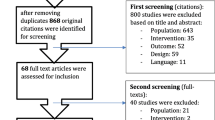Abstract
This review presents research on exercise, particularly upper extremity exercise, by breast cancer survivors, including participants in survivor dragon boat paddling and racing. While previous dogma held that women who had undergone breast cancer treatment needed to minimize upper extremity use, several studies have demonstrated that upper body exercise does not cause or exacerbate lymphedema, maintains muscle strength, and prevents bone loss. Two papers encourage survivors to reduce sedentary behavior and engage in 150 min or more of moderate to vigorous physical activity per week. Other studies have examined the effects of cancer treatments on lymphedema, use of compression garments when exercising to prevent lymphedema, and effects of exercise on side effects of breast cancer treatment. Three articles present research on effects and benefits of dragon boat paddling and racing after breast cancer treatment: cardiac function improvement, paddling using the skeletal muscles producing a beneficial factor, myokines, effects on lymphedema, and other cancer aftereffects. The review includes data from an Internet survey of women aged 60 and over who dragon boat paddle.
Similar content being viewed by others
References
Papers of particular interest, published recently have been highlighted as: • Of importance •• Of major importance
Brenner H. Long-term survival rates of cancer patients achieved by the end of the 20th century: a period analysis. Lancet. 2002;360(9340):1131–5.
Schmitz KH, Cheville A, Bryan LC, Gross C, Lytle L, Ahmed R. Physical activity and lymphedema (the PAL Trial): assessing the safety of progressive strength training in breast cancer survivors. Contemp Clin Trials. 2009;30(3):233–45.
Schmitz KH, Courneya KS, Matthews C, Demark-Wahnefried W, Galvão DA, Pinto BM, et al. American College of Sports Medicine roundtable on exercise guidelines for cancer survivors. Med Sci Sports Exerc. 2010;42(7):1409–26.
Kent H. Breast-cancer survivors begin to challenge exercise taboos. Can Med Assoc J. 1996;155(7).
McKenzie DC. Abreast in a boat—a race against breast cancer. Can Med Assoc J. 1998;139(no.4):378.
Beidas BS, Breah P, Barg F, Branas AR, Brown JC, Glanz K, et al. A hybrid effectiveness implementation trial of an evidence based exercise intervention for breast cancer survivors. J Natl Cancer Inst Monogr. 2014; (No. 50).
Sabiston CM, Brunet J, Vallance J, Meterissan S. Prospective examination of objectively assessed physical activity and sedentary time after breast cancer treatment: sitting on the crest of the teachable moment. Cancer Ekpidemiol Biomarkers Prev. 2014;23(7):1324–30.
Dobek J, Winters-Stone KM, et al. Musculoskeletal changes after 1 year of exercise in older breast cancer survivors. J Cancer Surviv. 2014;8(2):304–31.
Stefani L, Galanti G, Di Tante V, Klika RJ, Maffulli N. Dragonboat training exerts a positive effect on myocardial function in breast cancer survivors. The Physician and Sports Medicine. 2015.
Sierla R, Lee SM, Black D, Kilbreath SL. Lymphedema following breast cancer: regions affected, severity of symptoms and benefits of treatment from the patients’ perspective. Clin J Oncol Nurs. 2013;17(3):325–31.
Singh B, Disipio T, Peake J, Hayes SC. Systematic review and meta-analysis of the effects of exercise for those with cancer-related lymphedema. Arch Phys Med Rehabil. 2016;97:302–15.
Pedersen BK. Exercise-induced myokines and their role in chronic diseases. Brain Behav Immun. 2011;25(5):811–6.
Tresoldi I, Foti C, Masuelli L, Frajese GV, Rossi P, Modesti A, et al. Effects of dragon boat training on cytokine production and oxidative stress in breast cancer patients: a pilot study. Open Journal of Immunology. 2014;4:22–2.
Ray HA, Verhoef MJ. Dragon boat racing and health-related quality of life of breast cancer survivors: a mixed methods evaluation. Complementary and Alternative Medicine. 2013;13:205.
Gho SA, Steele JR, Jones SC, Munro BJ. Self-reported side effects of breast cancer treatment: a cross-sectional study of incidence, associations, and the influence of exercise. Cancer Causes Control. 2013;24:517–28.
Author information
Authors and Affiliations
Corresponding author
Ethics declarations
Conflict of Interest
The authors declare that they have no conflict of interest.
Human and Animal Rights and Informed Consent
The Institutional Review Board of the George Mason University approved the questionnaire and informed consent document used in the Internet survey.
Additional information
This article is part of the Topical Collection on Hematology and Oncology
Rights and permissions
About this article
Cite this article
Parker, M.H., Campbell, S. & Weinstein, A.A. Upper Extremity Exercise in Older Breast Cancer Survivors: Benefits of Dragon Boat Paddling. Curr Geri Rep 5, 226–232 (2016). https://doi.org/10.1007/s13670-016-0185-6
Published:
Issue Date:
DOI: https://doi.org/10.1007/s13670-016-0185-6




